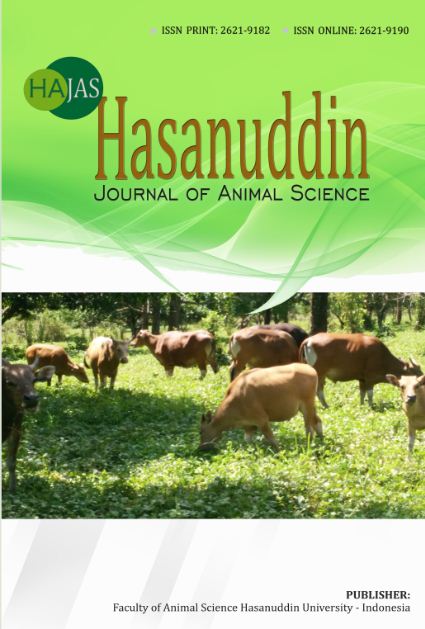Factors Influencing Beef Cattle Farmers’ Participation in Profit-Sharing System
DOI:
https://doi.org/10.20956/hajas.v6i1.32098Abstract
Profit-sharing beef cattle farming is a common livelihood strategy in rural Indonesia, particularly through the teseng system practiced in South Sulawesi Province. This study examined the factors influencing farmers’ participation in the teseng profit-sharing scheme in Temmabarang Village, Wajo Regency. Using a descriptive and explanatory design, data were collected from 90 respondents selected through simple random sampling and analyzed using a binary logistic regression model. The results indicated that capital availability, business scale, age, and income significantly influenced farmers’ participation, while land area and number of family dependents had no significant effect. This research offers novel empirical evidence on the socio-economic determinants of traditional livestock partnership systems in Indonesia. The findings underscore the importance of local financing mechanisms such as teseng in promoting sustainable and inclusive rural livestock development.
Keywords: Beef cattle, capital, income, profit-sharing, teseng
Downloads
Published
Issue
Section
License

This work is licensed under a Creative Commons Attribution-NonCommercial 4.0 International License.











